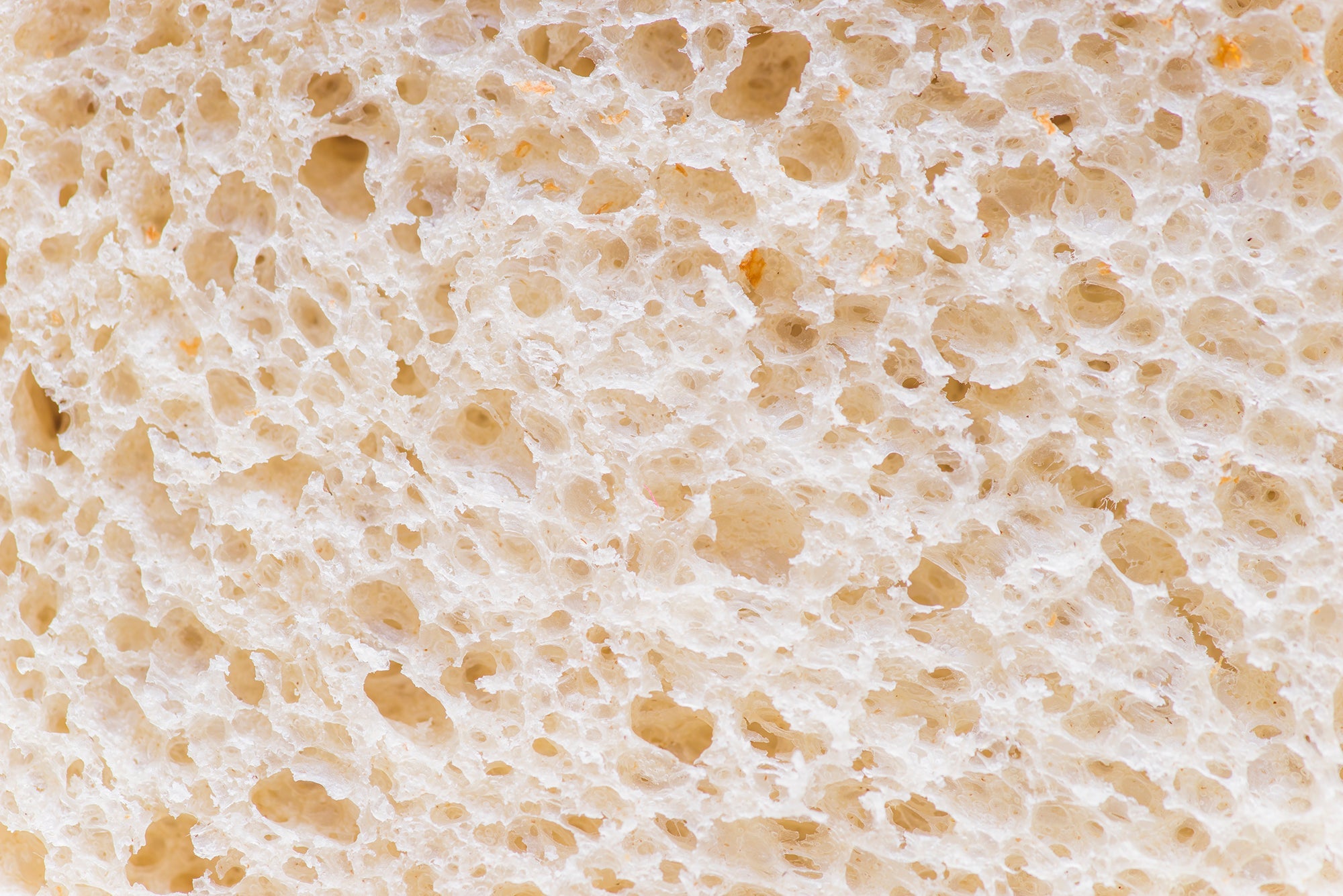
Are You Unknowingly Risking Your Health With These Foods?
7 Min read
How many of us find ourselves rushing through our day, juggling the balance of work, family, and personal commitments? We reach for a quick snack, believing it’s a healthy choice, or grab pre-prepared meals on the go. Unknowingly, we may be consuming something that could undermine our health – ultra-processed food (UPF). Despite our best efforts to eat well, UPFs are pervasive and often disguised as healthy options, stealthily undermining our health.
An explosion in recent scientific studies including those highlighted in the prestigious British Medical Journal (BMJ) reveals the shocking extent of this problem (1). Currently, up to 60% of our daily caloric intake comes from UPFs, with this figure rising to 80% in lower socioeconomic groups.
Research has now linked UPFs to thirty-two different harmful effects on health spanning cancer, mental health issues, respiratory conditions, heart disease, digestive problems and metabolic health issues. It’s even linked to increased all-cause mortality, which in simpler terms, means a higher overall risk of dying from any cause.
Even if you eat healthily and do your best to make smart food choices, UPFs may still sneak into your diet. Research confirms that a quarter of us eat healthy meals but undo their benefits with the volume of ultra-processed snacks and treats (2).
But for many, knowing where to start can be challenging. We have you covered with practical tips and solutions to reduce UPFs in your diet and embrace a healthier lifestyle.

What are ultra-processed foods?
“Processed” is not inherently an evil word. Nearly all foods and drinks are processed to some extent. Fresh apples are washed and sometimes waxed and drinking water is filtered. Even frozen spinach is “processed”. You might ask, “What’s the difference between a processed food and an ultra-processed food? And how do we know if a food is ultra processed?”
While there are multiple systems to classify the degree of food processing, the NOVA food classification system, developed by Brazilian scientists, is one of the most popular and well-known. It categorises foods based on their degree of processing, dividing them into four distinct groups, with UPFs being the most processed. Here is a summary of the different types of processing according to the NOVA system:
- Type 1: Unprocessed or minimally processed.
Foods that have been cleaned, had inedible parts removed, chilled, frozen, pasteurised, or vacuum-packed, without changing their nutritional properties. E.g., fresh fruits and vegetables, grains, nuts, meats, milk, and eggs

- Type 2: Processed culinary ingredients.
Ingredients used in cooking and food preparation include oils, butter, sugar and salt fats that have been processed by pressing, refining, grinding, milling, and drying.
- Type 3: Processed foods.
These are foods that are made by adding sugar, oil, salt, or other processed culinary ingredients to unprocessed or minimally processed foods. The primary aim is to increase shelf life or enhance taste. Examples include canned vegetables and fruits, cheeses, and freshly made bread.

- Type 4: Ultra-processed food.
Foods that contain five or more ingredients, including at least one you don’t recognise or wouldn’t use in a typical home kitchen. These often include extracted substances like processed fats and oils, hydrogenated fats, and modified starches.
- Have extensive processing methods not used in typical home kitchens been used?
- Is the product designed to be convenient, hyper-palatable, and highly profitable?
- Does it have health claims? This might sound at odds with UPFs, but often the processing includes fortification with nutrients like vitamins and minerals that permit the use of health claims or give a health halo such as "gluten-free" or "vegan".
Which foods are the worst ultra-processed foods?
Dr. Fernanda Rauber, a leading scientist in the field, describes UPFs as "not food, but an industrially produced edible substance." Despite this unappealing description, UPFs often taste delicious, making them hard to resist.
So, which ones should we be most wary of?
Some of the top ultra-processed foods that frequently find their way into our shopping baskets, meals, and snacks include fizzy drinks, sweets and chocolates, ice cream, biscuits, cakes, and pastries. While most of us consider these as occasional 'treat' foods, it’s the many other everyday items which sneak their way into the UPF category. These include sausages, burgers, packaged pies and pizzas, chicken nuggets, breakfast cereals, flavoured yogurts, bread, "healthy" snack bars and even many time-saving tins and jarred sauces. We should be mindful of these, as they are not always obvious.
UPF Health Risks - The Evidence
Because ultra-processed foods (UPFs) are a diverse group of products produced by a variety of different means, their detrimental effects are not due to just one factor. They pose numerous health challenges because of their composition and impact on the body. Here are the key issues associated with UPFs:
- Energy Density: UPFs tend to be much more energy-dense compared to whole foods.
- Nutrient Displacement: High in sugar, salt, and unhealthy fats, UPFs take up space in our diets that could otherwise be filled with more nutrient-dense foods like fruits, vegetables, and whole grains.
- Hyper-palatability: Designed to be extremely tasty, UPFs are easy to over-consume, with a bliss point engineered to make them hard to resist.
- Appetite Control: UPFs disrupt satiety signals, undermining appetite control. According to a systematic review published in the BMJ, about 14% of adults may be addicted to food, with UPFs playing a significant role.
- Low Nutrient Quality: UPFs are often low in vitamins, minerals, and other essential nutrients, leading to poor overall diet quality and potential nutrient deficiencies.
- Gut Microbiome: The additives and low fibre content in UPFs negatively affect the gut microbiome, which is crucial for digestion, immunity, and overall health.
- Cost and Availability: UPFs are cheap to manufacture and buy, making them widely available and an easy choice for consumers, particularly those on a tight budget.
Extensive research links a high intake of UPFs to a range of serious health conditions. Increased consumption of UPFs is associated with higher rates of heart disease and stroke, with every 10% increase in UPF intake correlating to a 6% increase in heart disease risk (1). The high sugar and refined carbohydrate content in UPFs raises the risk of developing type 2 diabetes, while the additives and lack of fibre can exacerbate gut issues. Additionally, diets high in UPFs are linked to depression and other mental health problems. The poor nutrient quality of these foods can lead to weakened bones and muscles, and emerging evidence suggests a connection between high UPF consumption and an increased risk of dementia and certain cancers.
The rise of ultra-processed foods (UPFs) not only poses significant health risks to individuals but also contributes to environmental degradation. The production of UPFs often involves intensive agricultural practices, high energy consumption, and the generation of substantial waste.
How to un-process your diet
For some, total abstinence might be easiest, but reducing your intake of UPFs doesn't mean you need to eliminate them entirely. The key is moderation. The current scientific evidence suggests that the higher the percentage of UPFs in our diet, the more damaging they are likely to be long-term (3), so the dose really does make the poison. Understanding the difference between types of processed foods can help you make better decisions for your health. Spend time learning how to spot UPFs that might be sneaking into your diet, gauge how much of your diet might be UPFs, and aim to reduce that number.
Prioritise whole, minimally processed foods and be cautious of items with long ingredient lists or those that seem too good to be true. Small changes in our daily choices can lead to significant long-term health benefits. Simple swaps can make a big difference. Opt for healthier food alternatives and make easy changes first. An occasional UPF is unlikely to affect your long-term health, but regular consumption long-term can lead to serious health issues. Make easy swaps and remember, you don't need to make everything from scratch or eliminate them completely, the aim is to be mindful of their impact.
Finally, don’t stress over the small stuff. Focus on your overall dietary pattern and strive for balance. Making gradual, sustainable changes will help you reduce UPF intake for long-term health.
Takeaways
The research on ultra-processed foods (UPFs) paints a clear picture: while they might be convenient and palatable, their health risks are significant and multifaceted. If you think a product might be a UPF then it usually is. Despite their pervasiveness, reducing UPF intake is possible and beneficial. Shifting towards minimally processed, whole foods can improve your health, reduce environmental impact and support planetary health. This transition aligns with the principles of Ancient+Brave, a brand committed to potency and purity ensuring that nothing in their products is classified as ultra-processed.
References
- Lane MM, Gamage E, Du S, Ashtree DN, McGuinness AJ, Gauci S, Baker P, Lawrence M, Rebholz CM, Srour B, Touvier M, Jacka FN, O'Neil A, Segasby T, Marx W. Ultra-processed food exposure and adverse health outcomes: umbrella review of epidemiological meta-analyses. BMJ. 2024 Feb 28;384:e077310. doi: 10.1136/bmj-2023-077310. PMID: 38418082; PMCID: PMC10899807.
- Bermingham KM, May A, Asnicar F, Capdevila J, Leeming ER, Franks PW, Valdes AM, Wolf J, Hadjigeorgiou G, Delahanty LM, Segata N, Spector TD, Berry SE. Snack quality and snack timing are associated with cardiometabolic blood markers: the ZOE PREDICT study. Eur J Nutr. 2024 Feb;63(1):121-133. doi: 10.1007/s00394-023-03241-6. Epub 2023 Sep 15. PMID: 37709944; PMCID: PMC10799113.
- Bestari FF, Andarwulan N, Palupi E. Synthesis of Effect Sizes on Dose Response from Ultra-Processed Food Consumption against Various Noncommunicable Diseases. Foods. 2023 Dec 12;12(24):4457. doi: 10.3390/foods12244457. PMID: 38137261; PMCID: PMC10742878.
